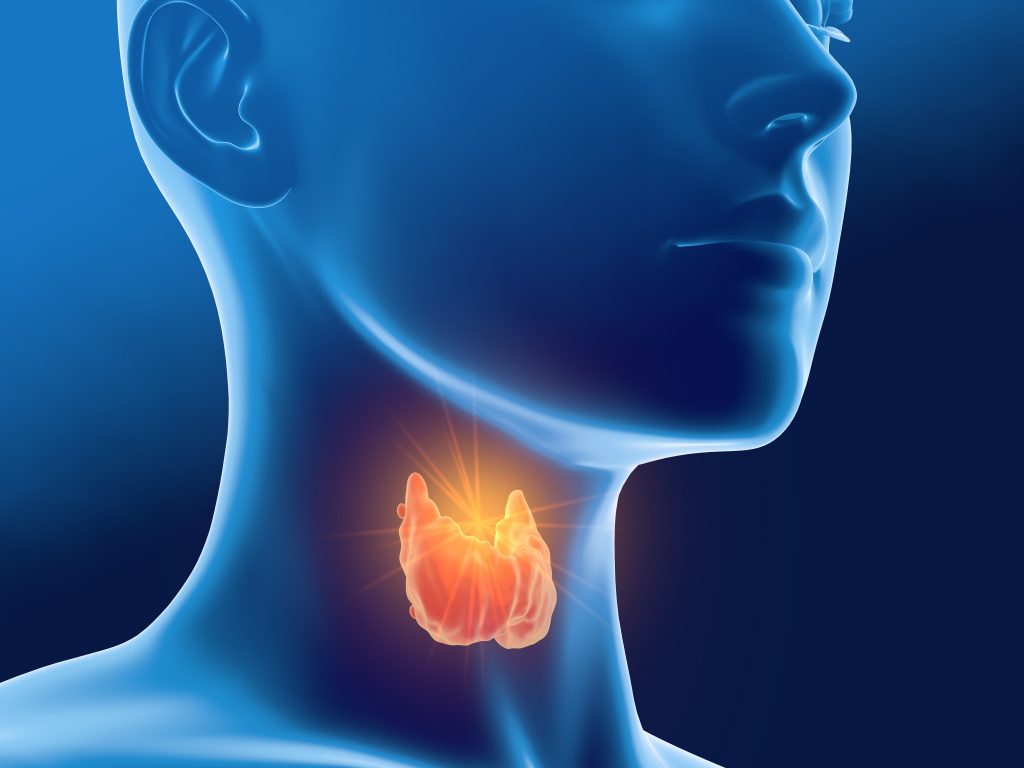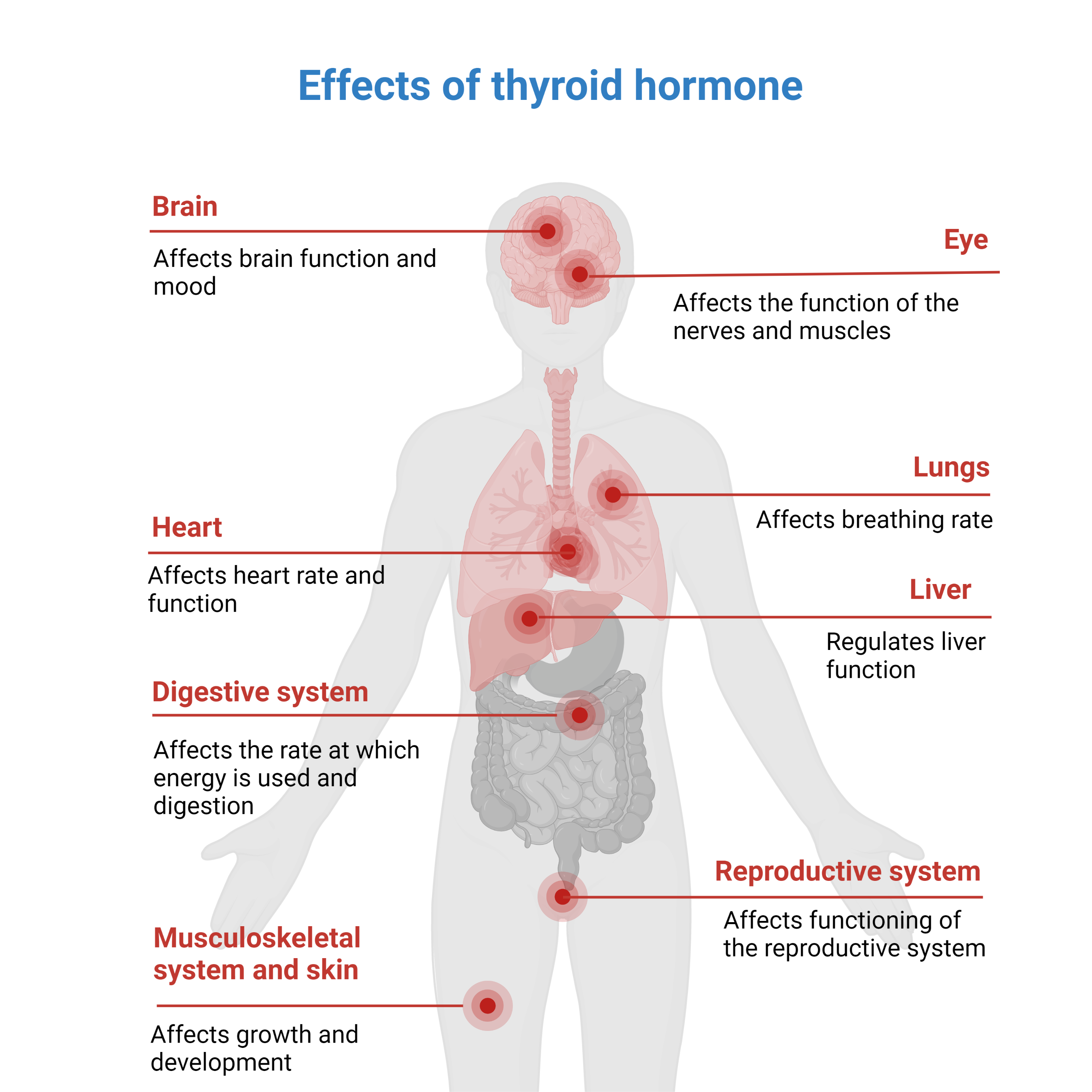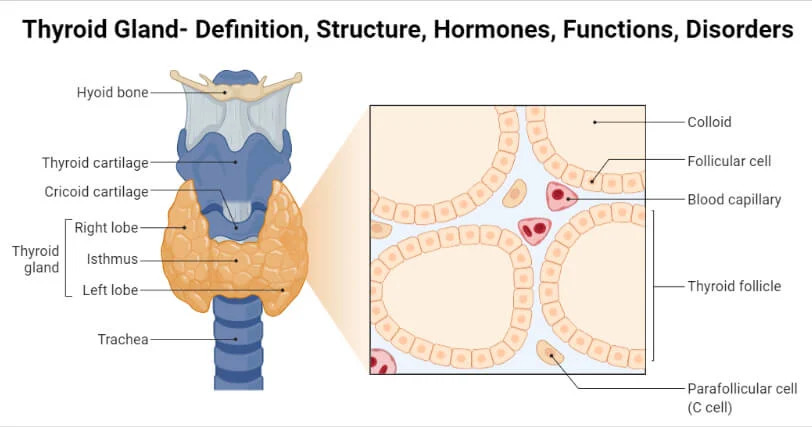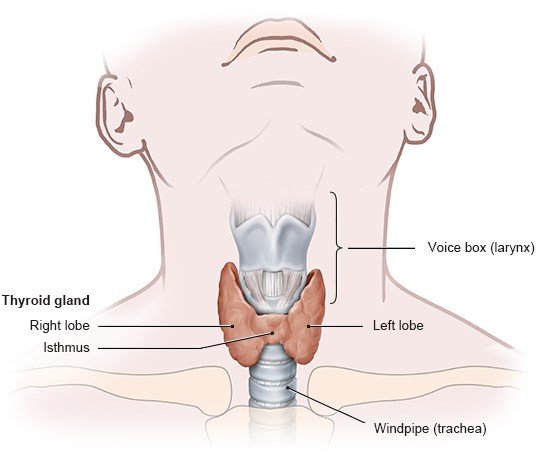
Key facts
- Your thyroid is a small, bow-shaped gland that sits in the front of your neck.
- Your thyroid gland makes 3 thyroid hormones: thyroxine (T4), triiodothyronine (T3) and calcitonin.
- Thyroid problems, such as an overactive or underactive thyroid, are common.
What is the thyroid gland?
Your thyroid is a small, bow-shaped gland. It sits in the front of your neck, just below your Adam’s apple.
What does my thyroid gland do?
Your thyroid gland makes 3 hormones:
- thyroxine (T4)
- triiodothyronine (T3)
- calcitonin
Thyroxine (T4) is the main hormone made in your thyroid. Thyroxine is changed into triiodothyronine (the active thyroid hormone) in your body.
Some triiodothyronine (T3) is also made and released by your thyroid.
Thyroxine and triiodothyronine help control your:
- energy levels
- body temperature
- metabolism
- health of your muscles and bones
- brain development
Calcitonin is also made in your thyroid gland. This hormone helps control the amount of calcium and phosphate in your body.

What medical conditions can affect the thyroid gland?
Thyroid problems, such as an overactive or underactive thyroid, are common.
Some thyroid conditions can cause an enlarged thyroid gland (goitre).
Overactive thyroid
Sometimes people have problems with their thyroid being overactive and producing too much thyroid hormone — this is called hyperthyroidism.
There are several conditions that can cause hyperthyroidism, including:
- an autoimmune disorder called Grave’s disease
- inflammation of your thyroid gland (thyroiditis)
- nodules on your thyroid
Hyperthyroidism makes your body use energy too quickly. Symptoms of hyperthyroidism
- weight loss
- sensitivity to the heat
- nervousness or feeling anxious
- racing heart and palpitations
- shortness of breath
- shaking
- difficulty sleeping
- irregular periods
- infertility
- hair loss
Underactive thyroid
If your thyroid gland doesn’t produce enough thyroid hormones (called hypothyroidism), your metabolism will slow down.
Hypothyroidism can be caused by:
- the autoimmune disorder Hashimoto’s disease
- thyroid damage from certain medicines or other treatments
- inflammation of your thyroid
- lack of iodine in your diet
- problems with your pituitary gland
Symptoms of hypothyroidism include:
- being more sensitive to the cold
- fatigue (tiredness)
- dry skin
- constipation
- weight gain
- depression
- irregular periods
- swollen face
- difficulty getting pregnant
Hypothyroidism is usually permanent and is treated by thyroxine replacement therapy.
How are thyroid problems diagnosed and treated?
Tests that can help diagnose thyroid problems include blood tests called thyroid function tests.
Sometimes imaging tests are needed to work out what is causing your thyroid problem.
Your treatment will depend on the type of problem you have. Treatment may involve medicine. In some cases, your doctor may recommend surgery.






